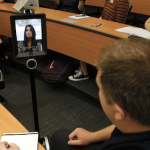I’m asked this question at least a couple of times every month. My initial answer is usually: don’t do illegal stuff. Then, I elaborate. Each economic development project is different. However, the government tends to address them the same. A simple economic impact study is completed, and it’s assumed no activity will occur without the government getting involved. There’s a problem here. The initial study process was established to answer the question in the title. The goal was for a community to not give away more than it gets in return. This was set up mainly for base sector projects that don’t compete for local customers. It worked.
Then, some cities got clever and started returning to the days when they competed for local market stuff. An impact study completed in isolation no longer addresses the basic rules, and doesn’t address the “gift clause.” I reviewed several projects that used the GPLET incentive (property tax reduction), and found at least half are easy targets for lawsuits. This isn’t just an Arizona issue. Most states have provisions against the government taking money from one taxpayer and gifting the funds to another without trading for equally valued services. There are indeed situations that call for something to be done about economic or environmental distress. Yet, this is rarely studied in detail.
What’s the first step towards resolving the problem of government overreach? It’s a commitment by local leaders to get back to the basics of balancing their budgets, providing adequate infrastructure, and partnering with the private sector on workforce training, among other things. It also includes a commitment to study the individual markets more thoroughly and identify if the incentive will only be shifting activity from one location to another. Additional steps include setting better standards for approving incentive use, rejecting incentive use, and identifying what should be done for those projects that are a little more complicated. More will be addressed later.








